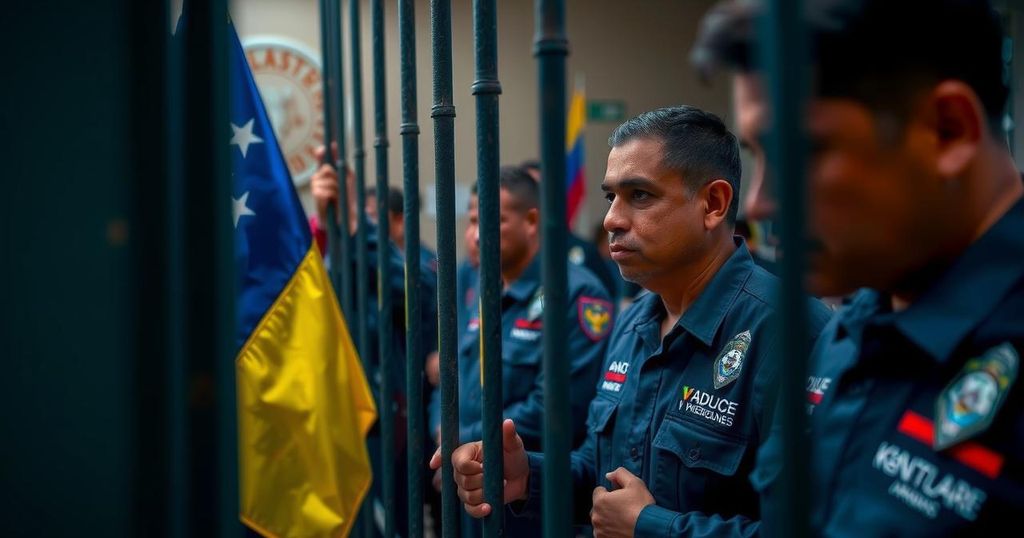Venezuela Releases Protest Prisoners Amid Political Turmoil
Dozens of prisoners detained during protests following Venezuela’s disputed presidential election were released, amid ongoing concerns over human rights violations and political legitimacy. The releases come as the Attorney General reviews further detainees’ cases, amidst reports of fatalities during government crackdowns on protests against President Maduro, who faces significant international skepticism regarding his reelection.
Venezuela has witnessed significant developments following the controversial presidential election, where President Nicolas Maduro was declared the victor. According to the local human rights organization Foro Penal, a total of seventy individuals, comprising fifty from Tocorón prison in Aragua state and twenty from various other detention facilities, have been released. Video recordings captured emotional scenes of the freed detainees being joyfully embraced by family members and supporters. Since the protests erupted in response to the July election, which many Venezuelans and international observers deemed fraudulent, over 1,800 individuals have faced arrest, with Human Rights Watch confirming credible reports of twenty-four deaths during the government crackdown on dissent. The Venezuelan Attorney General indicated that the government would reevaluate the cases of more than two hundred remaining detainees, potentially leading to further releases. Tragically, one individual, Jesús Manuel Martínez Medina, an activist with the opposition party Vente Venezuela, passed away while in custody after being hospitalized since early October. The Attorney General stated he had received adequate medical attention but did not confirm the date of his death. Venezuela’s electoral authority declared Maduro’s victory amidst significant skepticism, with numerous countries refusing to acknowledge the election results, setting the stage for continued unrest and challenge to his regime. As Maduro prepares to begin a third consecutive term in January, the political landscape continues to be tumultuous, dominated by disputes over electoral legitimacy and persistent human rights concerns.
The political situation in Venezuela remains tense, particularly following the July election that resulted in President Nicolas Maduro’s reelection amidst widespread allegations of electoral fraud. The newly formed government faces significant opposition, both domestically and internationally, as skepticism about the election results persists. Human rights organizations and foreign governments have raised concerns regarding the treatment of those protesting against the regime, highlighting a troubling crackdown on dissent that has led to numerous arrests and tragic fatalities among demonstrators. The country is experiencing a multidimensional crisis, characterized by economic hardship, humanitarian challenges, and political instability as Maduro’s administration continues to maintain power despite significant discontent.
In summary, the recent release of prisoners following Venezuela’s disputed presidential election underscores the ongoing human rights challenges faced by the regime. With reports of excessive force during protests and government crackdowns on dissent, the implications for political stability and reformation are uncertain. As Maduro is set to start a new term, the international community continues to question the legitimacy of his administration, and calls for accountability in human rights abuses remain crucial as Venezuela navigates its complex crisis.
Original Source: www.cnn.com




Post Comment